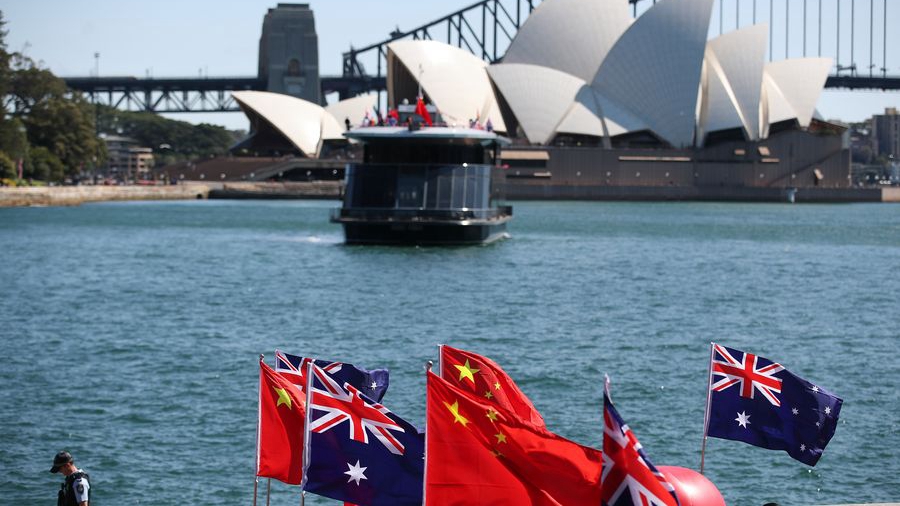
The Chinese and Australian national flags on a celebration event in Sydney, Australia, on Sept 8, 2019. [Photo/Xinhua]
This is an editorial from China Daily.
It has been reported that the Australian federal government will pressure the State of Victoria to cancel its cooperation program with China's Jiangsu province.
Although it was said to be on the list of programs that the Department of Foreign Affairs had identified as potentially contrary to Australia's national interest, the bid to scrap the Victoria-Jiangsu Program for Technology and Innovation R&D, which was agreed in 2015, is obviously intended as an act of revenge by Australian Prime Minister Scott Morrison for China's probes into imports from Australia.
To the disappointment of those who have been hoping for a turnaround in relations, the Australian government is still heading down the road of no return for bilateral relations.
Paul Monk, former head of China Analysis at Australia's Defense Department, said something to the effect that the program should be viewed through the prism of China's intention of increasing its military-industrial strength.
It is such politicization of bilateral relations that has damaged ties between the two countries. Australia has accused China of engaging in "intervention and infiltration" activities in the country. It has even proposed a so-called "independent international inquiry" into the novel coronavirus outbreak in an attempt to lay the blame for the pandemic at China's door.
It has also launched 106 anti-dumping and anti-subsidy investigations into imports from China, and imposed unreasonably harsh scrutiny on Chinese investments in Australia.
China-Australia relations would not have worsened to the extent they have today had the Australian government not associated bilateral ties with political ideologies or geopolitics with the intention of stigmatizing and demonizing it.
China has no intention of seeking global hegemony. It pursues a peaceful rise, and seeks to develop reciprocal and equal relations with all countries.
Economic cooperation between China and Australia are in the interests of both countries and both peoples. That explains why China has become Australia's largest trade partner.
However, it seems the current Australian government is unsettled by that. Looking through an ideological and geopolitical prism, it sees a distorted image of China, and perceives it to be a threat. The Australian government is even considering seeking assistance from its "Five-Eye" allies in response to China's reaction to its provocations, naively believing sanctions from the five allies would be able to pressure China onto its knees.
Terminating the Victoria-Jiangsu Program for Technology and Innovation R&D, which benefits both sides in many ways, will be another step astray from the right track of amicable bilateral relations. Canberra should reconsider.
It is high time that the Australian government acquired a clear understanding of the nature of Sino-Australian relations. It will otherwise be impossible for it to adopt the right approach to handle bilateral relations with its largest trade partner.

 中文
中文





